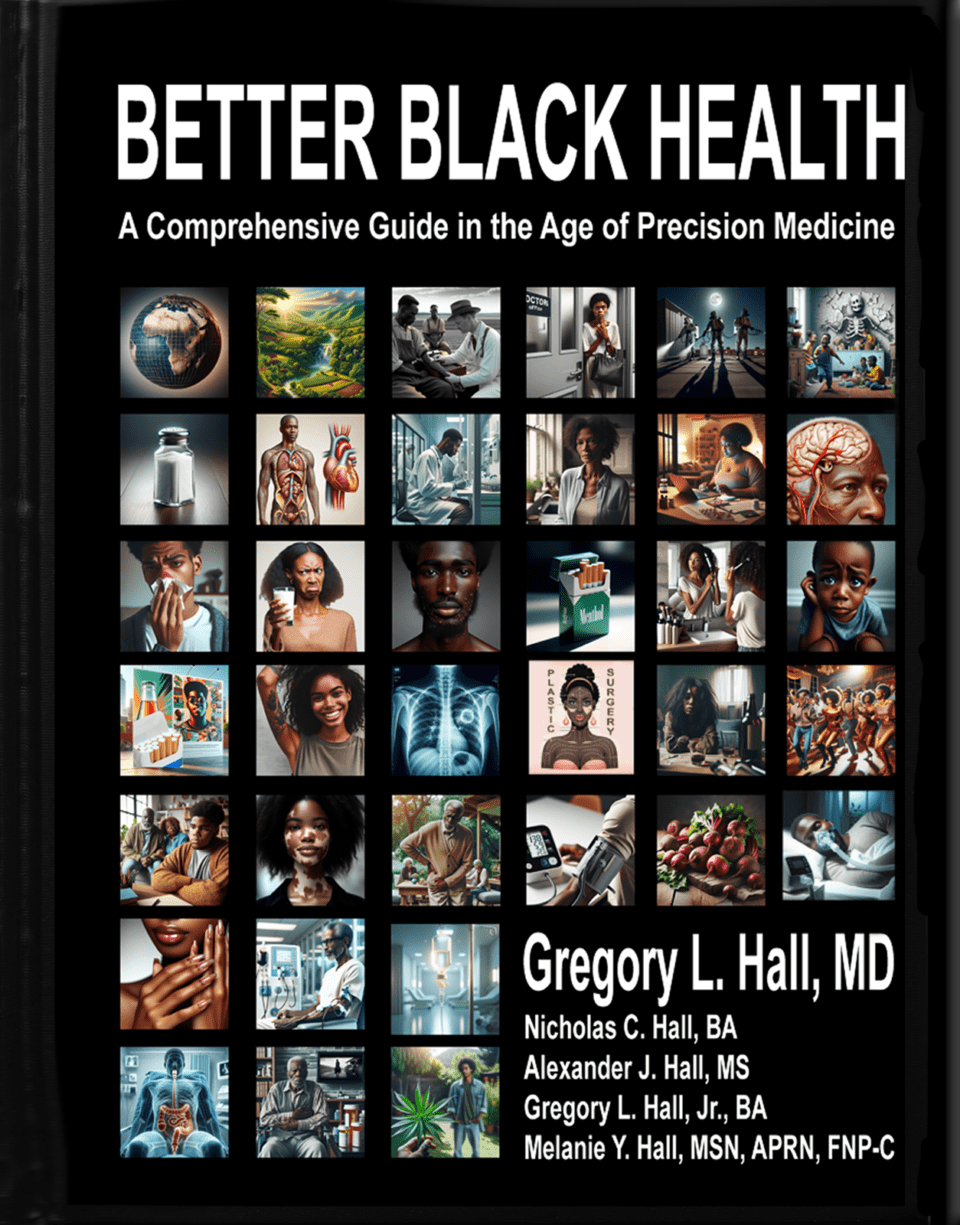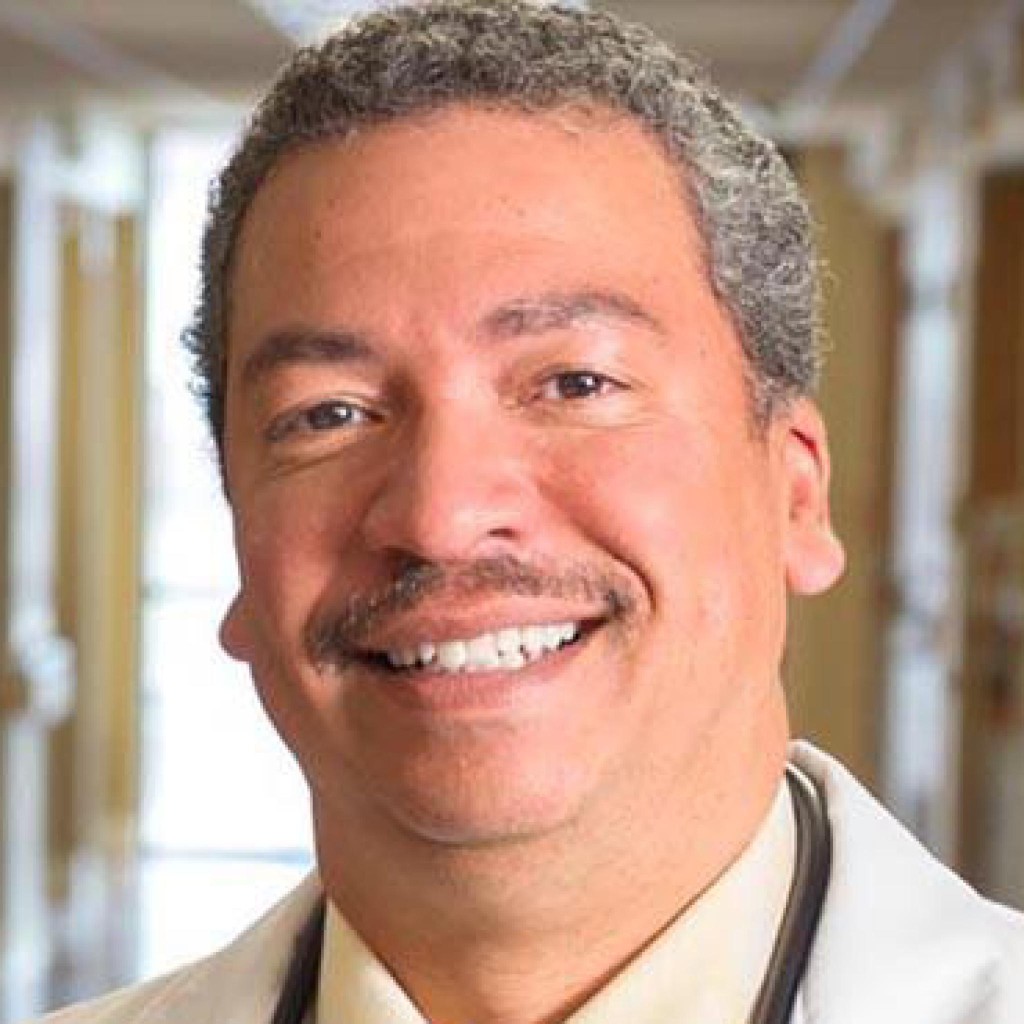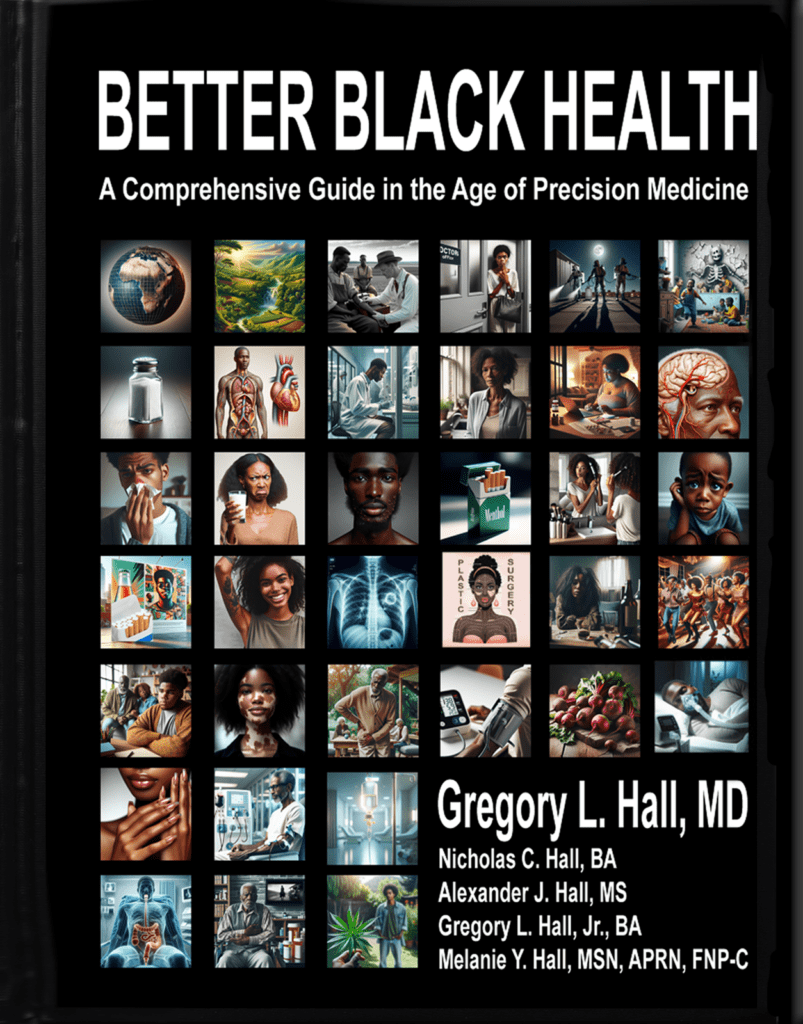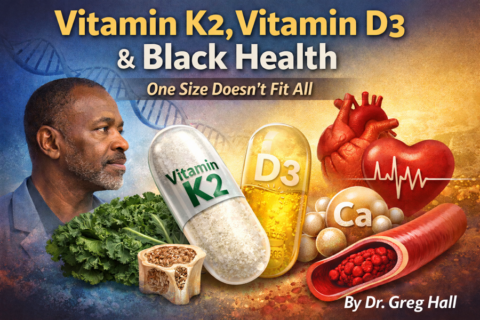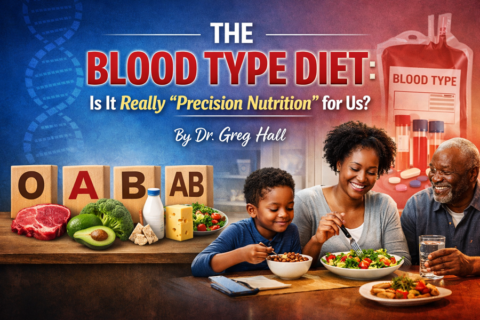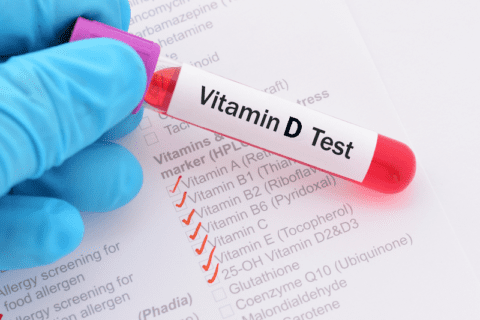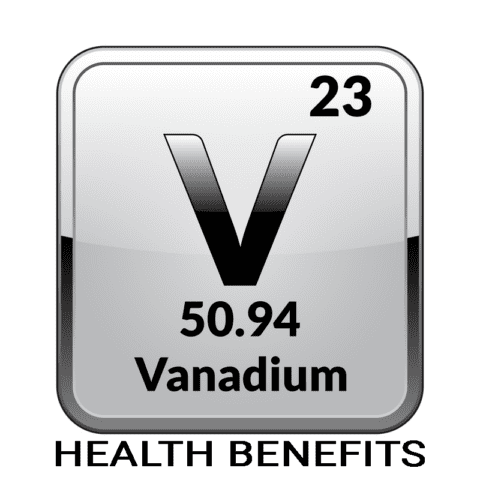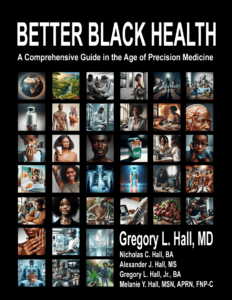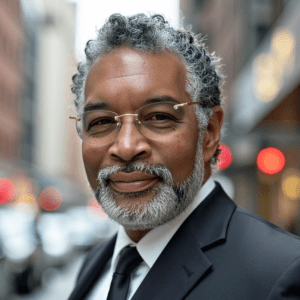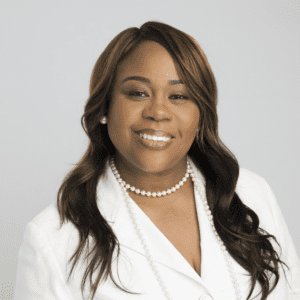“Better Black Health: A Comprehensive Guide in the Age of Precision Medicine” is a coffee table reference book that should be in every African American’s home. This 400-page book offers a wide range of best practices for improving African American health, from traditional (allopathic) to alternative/holistic medicine approaches, always emphasizing science-backed and precision medicine topics, covering over 150 health issues.
What is Precision Medicine?
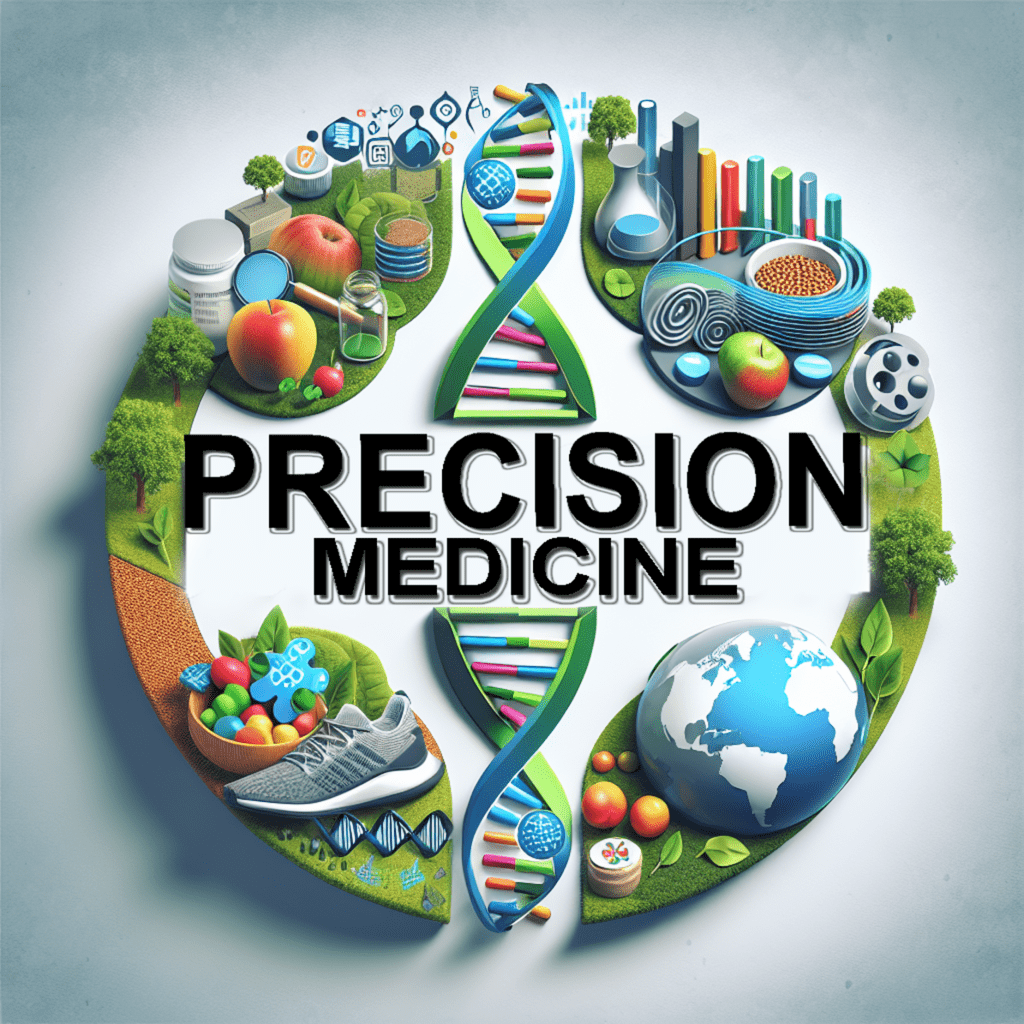
Precision medicine is a personalized care approach that considers genetics, environment, and lifestyle. No one has addressed African American health this way before, and no one is more qualified to write this book than Dr. Hall, given his prior work, including “Patient-Centered Clinical Care for African Americans,” published by Springer Nature in 2020, and the recently released second edition, “Precision Medicine for African Americans,” which broadly covers optimal clinical approaches for Black patients. The author’s website, DrGregHall.com, features numerous articles and receives about 15,000 visits annually.
Dr. Hall’s patients urged him to create this book, and since many are interested in alternative methods, he included that content as well.
The best way to improve health literacy and patient education is by combining information with visuals. This book includes over two hundred color images to engage readers and promote exploration of new topics.
What is Available for Us?
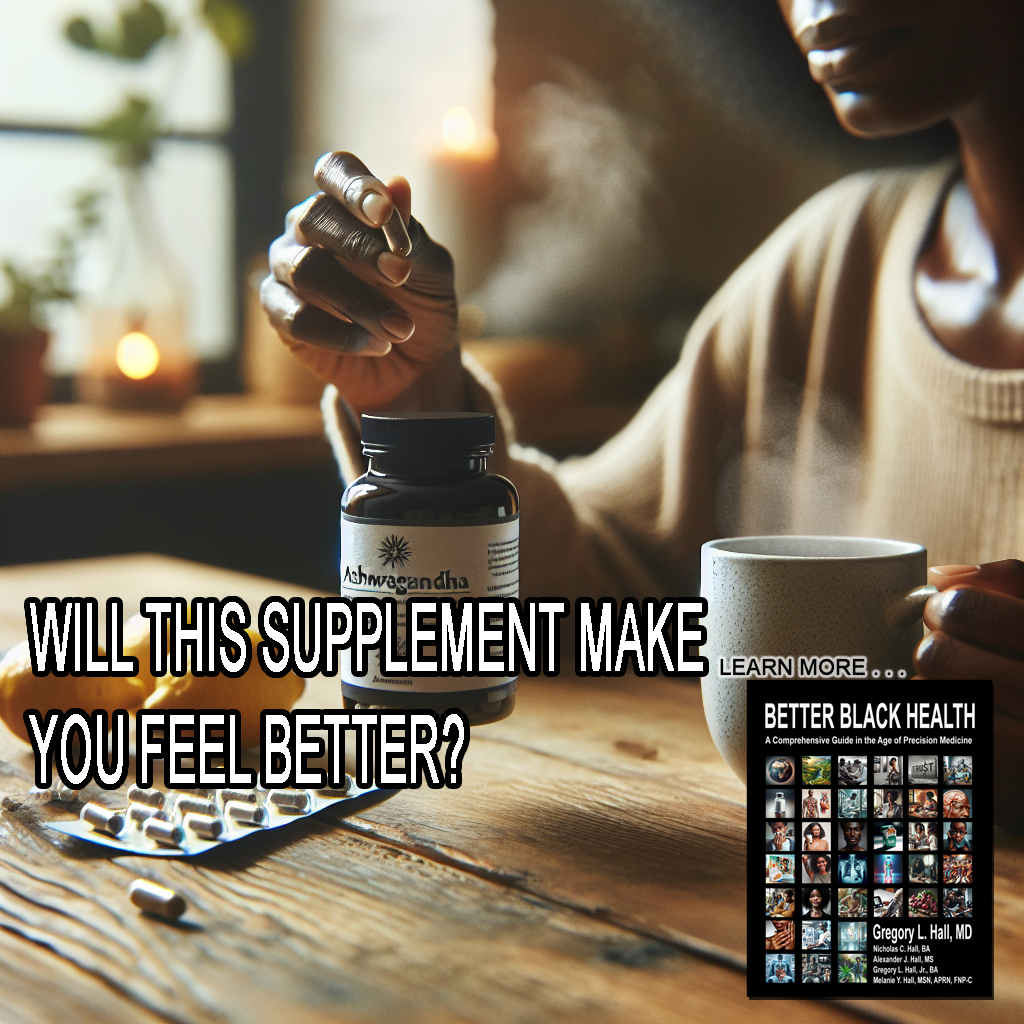
Amazon’s listings of African American health books highlight many on mental health and holistic approaches, but no one has addressed the full spectrum of Black health or, as we emphasize, embraced all approaches with proven health benefits while advising against some based on “precision advice.”
This book is specifically made for African Americans and aims to answer questions on various topics, including major cancers, cardiovascular health, surgical preparation, erectile issues, menopause, and more, while always embracing prevention and best practices.
With 15 million Black families in the U.S., the need is great, and no one has yet to offer a comprehensive approach to improving Black health.
“Everyone assumes that the poor health of the Black community is due to either bad habits, poverty, or a combination of both. In reality, the situation we see results from overlooked genetic variations, environmental influences, cultural differences, unawareness among medical providers, and systemic oppression. Precision medicine, which incorporates genetics, environment, and lifestyle, will pave the way to improved overall health for the Black community.” Greg Hall, MD
Like No Other Book
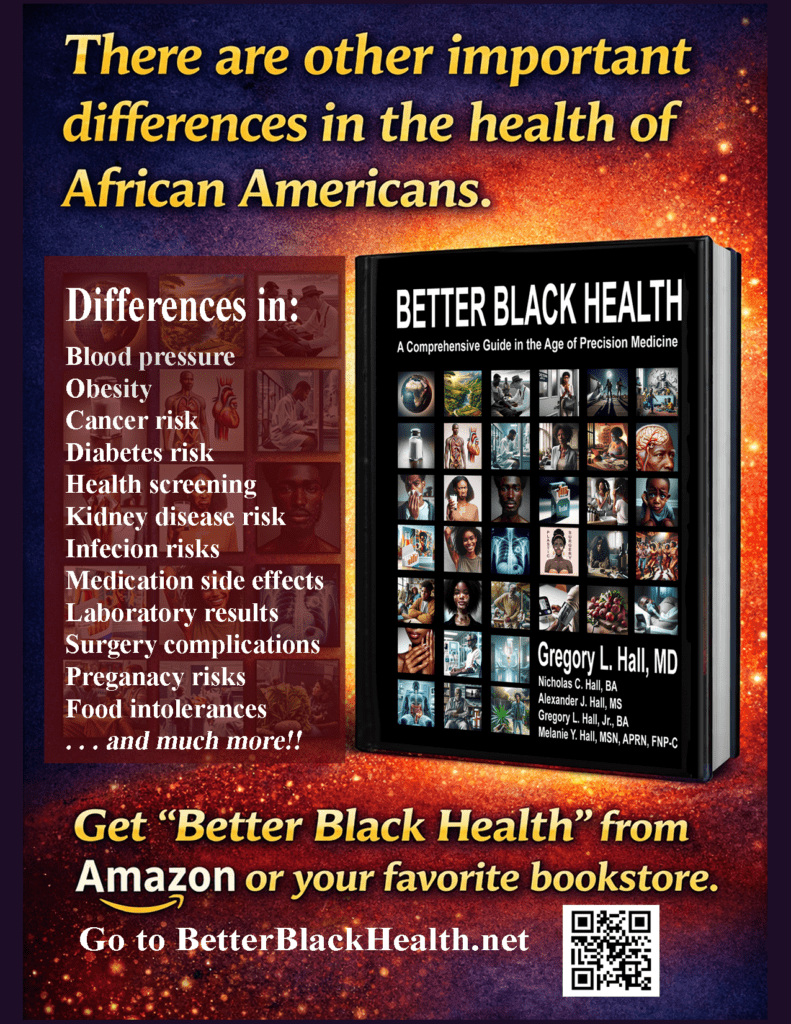
This isn’t your typical medical textbook. “Better Black Health” is a meticulously researched guide that combines scientific evidence with a profound understanding of the historical and cultural context shaping the health experiences of Black Americans. The authors boldly confront the legacy of medical racism, detailing instances of exploitation and neglect that have fostered a deep-seated distrust in the healthcare system. This historical context is crucial for understanding why many African Americans hesitate to seek medical care, leading to delayed diagnoses and poorer health outcomes. But Better Black Health is far more than a historical account. It’s a practical, actionable resource designed to empower readers to take control of their health and includes over 200 full-color images. The book tackles a wide range of topics relevant to the Black community, including:
Understanding Health Disparities: The book delves into the specific reasons why certain diseases—heart disease, cancer, diabetes, mental health issues—disproportionately affect African Americans, exploring genetic predispositions, environmental factors, and the impact of chronic stress.

Navigating the Healthcare System: Readers receive practical advice on preparing for doctor’s visits, communicating effectively with healthcare providers, understanding lab results (and the ways they may differ for Black patients), and advocating for their needs.
Precision Medicine and Personalized Care: The authors emphasize the importance of considering individual differences in genetics, environment, and lifestyle when determining the best course of treatment. They challenge the one-size-fits-all approach prevalent in much of mainstream medicine.
Nutrition and Natural Remedies: *Better Black Health* provides a detailed exploration of nutritional needs specific to African Americans, including common deficiencies, the benefits of certain foods, and the potential risks associated with some supplements. It also examines the role of traditional remedies and holistic approaches in promoting wellbeing.
Mental Health: Addressing the often-overlooked aspect of mental health, the book tackles the stigma surrounding therapy, provides insights into uniquely Black perspectives on mental wellness, and offers practical strategies for stress management.
Surgical Considerations: The book acknowledges the higher rates of surgical complications among African Americans and offers guidance on preparing for surgery, minimizing risks, and optimizing recovery.
What truly sets “Better Black Health” apart is its approach. Written by Dr. Hall and his family—including a physician, a nurse practitioner, and other healthcare professionals—the book offers a unique blend of medical expertise and lived experience. This multi-generational perspective ensures the information is both scientifically sound and deeply relatable to the African American community.
Available on AMAZON here: https://www.amazon.com/Better-Black-Health-Comprehensive-Precision/dp/1665781025/
“Better Black Health” is more than a book; it’s a movement. It’s a call to action, urging readers to become active participants in their healthcare journey and to demand equitable, culturally competent care. It’s a resource that empowers the Black community to rewrite the narrative around health disparities, building a healthier and more prosperous future. This book is a must-read for anyone seeking to understand and address the critical health issues facing African Americans today. It’s a powerful tool for fostering change, one individual, one family, one community at a time.

